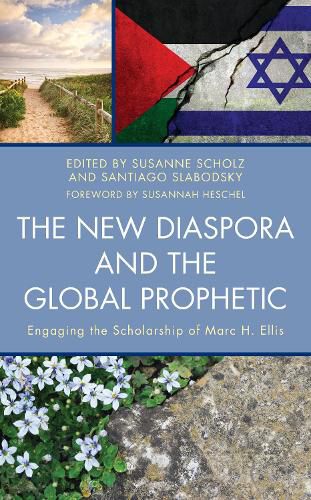Readings Newsletter
Become a Readings Member to make your shopping experience even easier.
Sign in or sign up for free!
You’re not far away from qualifying for FREE standard shipping within Australia
You’ve qualified for FREE standard shipping within Australia
The cart is loading…






For four decades now, Marc H. Ellis has sought to rethink Jewish tradition in light of the prophetic imperative, especially with regard to the need for geopolitical justice in the context of Israel/Palestine. Here, twenty-two contributors offer intellectual, theological, political, and journalistic insight intoEllis’s work, connecting his theological scholarship to the particularities of their own contexts. Some contributors reflect specifically on Israel/Palestine while others transfer Ellis’s theopolitical discussions to other geopolitical, cultural, or religious concerns. Yet all of them rely on Ellis’s work to understand the connections of prophetic discourses, religious demands, social movements, and projects of social justice. Paying particular attention to global racism, sexism, ethnocentrism, white supremacy, and current neocolonial practices, the contributors also address minoritized liberation theologies, the role of memory, exile and forgiveness, biblical hermeneutics, and political thought. In diverse and powerful ways, the contributors ground their scholarship with the activist drive to deepen, enrich, and strengthen intellectual work in meaningful ways.
$9.00 standard shipping within Australia
FREE standard shipping within Australia for orders over $100.00
Express & International shipping calculated at checkout
For four decades now, Marc H. Ellis has sought to rethink Jewish tradition in light of the prophetic imperative, especially with regard to the need for geopolitical justice in the context of Israel/Palestine. Here, twenty-two contributors offer intellectual, theological, political, and journalistic insight intoEllis’s work, connecting his theological scholarship to the particularities of their own contexts. Some contributors reflect specifically on Israel/Palestine while others transfer Ellis’s theopolitical discussions to other geopolitical, cultural, or religious concerns. Yet all of them rely on Ellis’s work to understand the connections of prophetic discourses, religious demands, social movements, and projects of social justice. Paying particular attention to global racism, sexism, ethnocentrism, white supremacy, and current neocolonial practices, the contributors also address minoritized liberation theologies, the role of memory, exile and forgiveness, biblical hermeneutics, and political thought. In diverse and powerful ways, the contributors ground their scholarship with the activist drive to deepen, enrich, and strengthen intellectual work in meaningful ways.